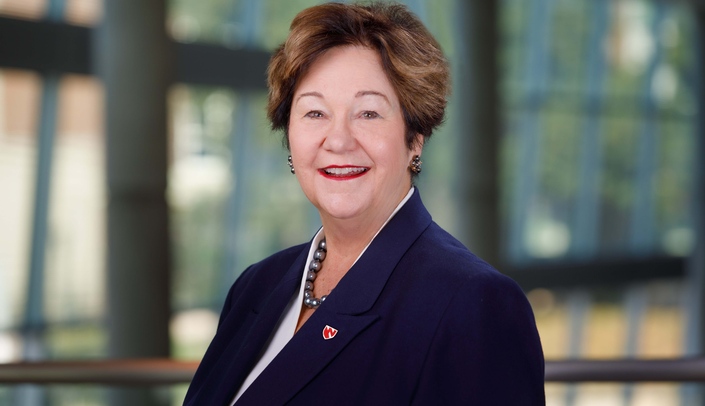College of Nursing faculty and staff have become experts in the use of very sophisticated, complex technology for teaching and learning, research and clinical practice. This is one of the cornerstones of excellence in this college. The College of Nursing Strategic Planning Committee will address artificial and augmented intelligence as the theme for its upcoming Strategic Planning Retreat, scheduled for April 6.
Although the group will address all aspects of our mission as operationalized in our strategic plan, the overarching lens for our work will be a future influenced by artificial and augmented intelligence. Recent headlines about various chatbots have caused many to question how we can use these new technologies for good and what new ethical and legal issues we must address. We want to understand how they can help us in our work and learning, as well as in what ways they could help us achieve health equity – or identify the risks to health equity and determine how those can be eliminated.
In a new publication from the Blue Ridge Academic Health Group[i], the authors recommended that as leaders in academic health centers, we focus strategically on the ways digital and virtual technologies can improve the process and outcomes of patient care. They concluded that we must lead the way with helping health professions students learn the benefits and possible issues associated with clinical and research applications of digital technologies, and that despite the financial pressures affecting health organizations and higher education, that we must provide thought leadership in these areas. Artificial intelligence can support more effective and efficient decision making, but it is only as good as the data and algorithms built into it.
Chatbots hold promise in some areas that also cause us to ask serious questions about the humanity we promise to preserve in health care. Several years ago, the National Academy of Sciences, Engineering, and Medicine report on Social Isolation and Loneliness in Older Adults**[ii] noted that bots may support the social needs of isolated older adults or may help with certain tasks such as reminders. While we cannot allow these to replace real human interaction, nor forget the impact of economic and geographic status on accessibility and usability of these devices, they hold the potential to help people in novel and important ways.
We will discuss some of these opportunities and issues more fully in the UNMC College of Nursing Town Hall on April 7. I look forward to the dialogue and to the advancement of our current work toward using new tools for the benefit of all.
All best!
Julie Sebastian, PhD
Dean, UNMC College of Nursing
[i] Blue Ridge Academic Health Group. (2023). Harnessing Emerging Virtual and Digital Health Technologies to Transform Health Care. Report 26. Atlanta, GA: Emory University Woodruff Health Sciences Center
[ii] National Academy of Sciences, Engineering, and Medicine. (2020). Social Isolation and Loneliness in Older Adults: Opportunities for the Health Care System. Washington, DC: The National Academies Press. https://doi.org/10.17226/25663.
